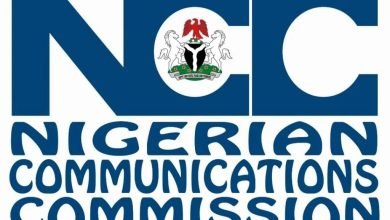Technology
Nigeria’s Telecom Regulator Sets New Corporate Governance Rules, Eyes Long-Term Sector Reform

Nigeria’s telecommunications industry, long hailed as one of Africa’s most dynamic and fast-growing, may be entering a new era—one defined less by breakneck expansion and more by institutional resilience, ethical leadership, and sustainable value creation.
On Tuesday, the Nigerian Communications Commission (NCC) formally launched its Guidelines on Corporate Governance 2025, a sweeping new regulatory framework aimed at overhauling how telecom companies operate, manage risk, and engage with stakeholders.
At an unveiling ceremony held at the Sheraton Hotel in Lagos, NCC Executive Vice Chairman Aminu Maida made clear that the move is about more than just compliance.
“This is not about ticking boxes,” Maida told industry leaders and policymakers. “It’s about embedding governance practices that ensure long-term survival, customer trust, and the kind of investment confidence that drives innovation and inclusive development.”
The stakes are high. With over 170 million subscriptions and telecom infrastructure underpinning everything from banking and education to national security, Nigeria’s telecoms sector is now one of its most strategic. But as Maida warned, scale alone is not enough.
“What we need now is governance foresight and institutional maturity,” he said. “Good governance is not just a legal obligation—it’s a competitive advantage.”
The new guidelines are the latest evolution in a journey that began in 2014, when the Commission introduced a voluntary corporate governance code for the industry. That was upgraded to a mandatory regime in 2016. Now, the 2025 guidelines, Maida said, reflect both the sector’s specific realities and the increasingly complex regulatory environment shaped by global trends in artificial intelligence, cybersecurity, and environmental sustainability.
Importantly, the NCC backed its new policy with data. In 2024, the Commission conducted a detailed study of licensees, examining how various governance practices—from board structure to risk management and CSR—affected regulatory compliance, service quality, and financial outcomes.
The findings were unambiguous: firms with stronger governance consistently outperformed their peers.
“The evidence is compelling,” Maida said. “Governance maturity directly correlates with business success. That’s why we’re making this the new standard.”
While the NCC will roll out the guidelines in phases, depending on license class, the reforms are significant. Among the key provisions are clear role separations between board chairpersons and CEOs, inclusion of independent directors, and a mandatory infusion of cybersecurity expertise at the board level.
Licensees must also introduce stronger risk frameworks tailored to sector-specific vulnerabilities such as interconnect debt and service disruptions. A new “Regulatory Officer” role will help ensure real-time compliance, while ESG and CSR reporting will now be a formal requirement—focusing on everything from energy efficiency to community impact.
Crucially, enforcement will be calibrated. Sanctions for non-compliance will follow a tiered system that balances deterrence with fairness.
“This is a toolkit, not a straitjacket,” Maida said. “We’re not trying to slow the sector down. We’re trying to give it the tools to last.”
To some, the reforms may seem bureaucratic. But Maida insists they are the foundation for long-term value creation—helping firms attract patient capital, lower financing costs, and build resilient networks in an era of global digital uncertainty.
“Governance is not just about rules—it’s about culture,” he said, urging firms to invest in director education, link executive pay to governance goals, and move beyond “paperwork to performance.”
The Commission, he added, will continue to support operators through capacity-building and responsive supervision.
The development of the guidelines, he noted, was far from unilateral. It followed a 2023 public inquiry and a subsequent 2024 draft circulated for stakeholder feedback—bringing together input from telecom operators, investors, civil society, and governance experts.
In many ways, the guidelines arrive at a critical moment for Nigeria’s digital economy. With the country poised to roll out 5G networks, expand digital public infrastructure, and manage emerging technologies like AI, the question is no longer just about access—but trust, security, and sustainability.
“Strong governance attracts long-term investment,” Maida said. “And strong investment brings the broadband rollout, the jobs, and the innovations we need.”
The industry’s early architects echoed his optimism. In a goodwill message, legal scholar and Senior Advocate of Nigeria, Prof. Fabian Ajogwu—who chaired the committee that drafted the first corporate governance code in 2014—called the updated guidelines both timely and essential.
Coordinating Director of the Financial Reporting Council of Nigeria, Titus Osawe, agreed, describing the move as a “strategic step” in strengthening a sector that now touches nearly every Nigerian home and business.
Whether the new rules will reshape the culture of the telecom industry remains to be seen. But with regulatory tools now aligned with global best practices—and backed by strong evidence—the NCC appears determined to guide Nigeria’s digital backbone toward not just growth, but endurance.




